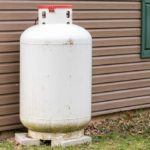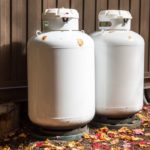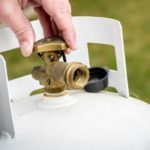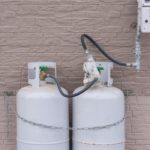Grounding is a great way to prevent any excess electricity or leaking gas appliances to cause any injuries or property damage. While propane tanks are designed to be used in an everyday setting with safety standards in mind, you can still have them grounded.
Propane tanks can be grounded, but it’s not required. Propane tanks are designed with valves and other safety features included, but not grounding. Grounding can add a layer of protection by sending any electricity (even simple static charge) into the ground, preventing unexpected sparks.
Use case and the size of your propane tanks can also come into play when deciding whether or not to ground your propane tank. There are also steps and rules in place from governments when it comes to grounding which should be looked over before proceeding.
What is Grounding?
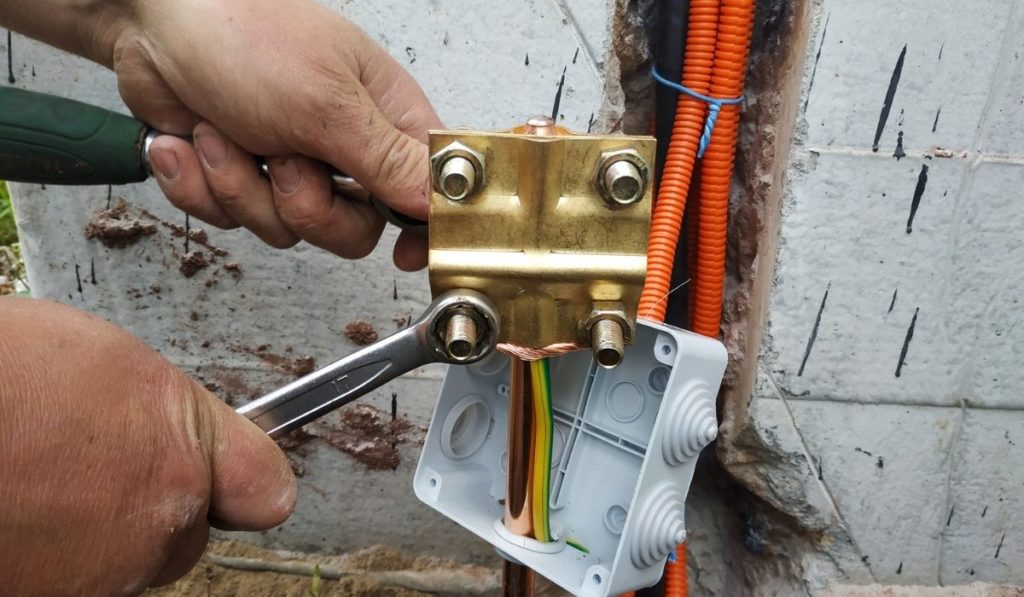
In the modern world where electrical appliances and products are used throughout the house, it’s important to understand what grounding is. Simply speaking, electrical grounding is an alternative or a backup pathway for the electrical current to flow should there be a problem, fault or breakage in the main wiring system.
Grounding, therefore, creates a new physical path between the appliances and the ground. You can accomplish this for a small tank with a simple grounding kit (on Amazon), but for larger tanks the situation can get a bit more complicated.
How Does Grounding a Tank Work?
The process of electrical grounding and how it functions can be explained rather simply. Here’s how:
An electrical circuit consists of an active wire. This wire supplies the power, and it also consists of a neutral wire which carries the current into the grounding wire. The grounding wire is what provides an additional pathway for the eclectic current to return safely into the ground, preventing any danger or hazards along the way.
A copper conductor is connected from the wiring system’s metal rod into a few different terminals, which are for ground connections inside the service panel.
Should the wiring systems be using any electrical cables that are covered in metal, this is when the metal starts to serve as the ground conductor between the wall outlets and the service panel.
With that said, if the wiring system uses a plastic-covered cable, then you will need an extra wire to use for grounding purposes. Electricity will always look for the shortest path towards the earth and therefore should the main supply be interrupted or disturbed, be faulty, or have any problems, that current can easily flow into the ground through the extra grounding cable.
A direct and physical connection into the earth is a path which has the least resistance. This path takes over to become the shortest path for the current to flow into, which otherwise would have been a person or an appliance.
Protects against overloads
Power surges in a residential or any kind of neighborhood are normal, whether it’s because of rough weather conditions or anything else. However, these surges can harm your home appliances and products because of the dangerously high currents that may pass through it.
Grounding gives the excess electricity a chance to pass into the earth rather than making it into the appliance, which saves it from damage.
Prevents damage and death
While this may seem like an exaggeration, it’s true that a power surge or a fault in the wiring can end up killing someone. Should any excessive electricity pass through an appliance, it can not only damage the appliance but also harm and end up killing a person it’s in contact with. Grounding gives that extra current a route directly into the earth.
Earth conducts with least resistance
The earth is naturally a great conductor with the least amount of resistance. When you ground the electricity, you are making sure there is no chance of high volts or extra current running through your house at any time.
Can You Ground a Propane Tank?
Once you understand what grounding is and how it can be beneficial to not only the appliances or products, but also your safety, it can be a normal question to wonder if you can ground anything else you use, such as a propane tank.
While you can ground propane tanks, they tend to be safe, nevertheless. Propane tanks are designed with numerous use cases, minor accidents, and everyday impacts in mind by the manufacturer. But, propane tanks that are above the ground aren’t as safe as those that are grounded and underground. There are no barriers in place to protect them from anything.
Underground propane tanks tend to be safer, since there are barriers and placeholders from them. In addition to that, being grounded means that a gas leak of any sort will instantly be absorbed by the earth and the soil.
Propane tanks tend to come in various sizes if they are meant to be grounded. For an average homeowner, the propane tank will be about 500 gallons, and this can be grounded for a cost of around $3,000. This can either be a tank that you’ve rented or one you have purchased.
While this may seem like a lot of money, it’s important to remember the safety aspect as well as the fact that propane tanks that are underground can easily last anywhere from 30 to 40 years.
Leakage
Propane tanks that are grounded can sometimes be subject to extreme amounts of corrosion, and this is usually due to the weather and ground conditions. These harsh conditions can start to degrade the housing of the tank and eventually lead to leakage.
Since the tanks are grounded and out of sight, leakage has resulted in injuries and property damage. With that said, this is not a normal or a common occurrence. Usually, should there be any forms of regular leakage, it can be absorbed into the earth and is not harmful for the soil or earth.
Using a sacrificial anode can prevent this corrosion, but, if you’re this far down the rabbit hole you should contact a professional to advise you on your unique situation. If you have a big tank you want to ground, you need to get it right to amake sure you’re getting the grounding protection without producing a new corrosion issue no.
How Do You Ground a Propane Tank?
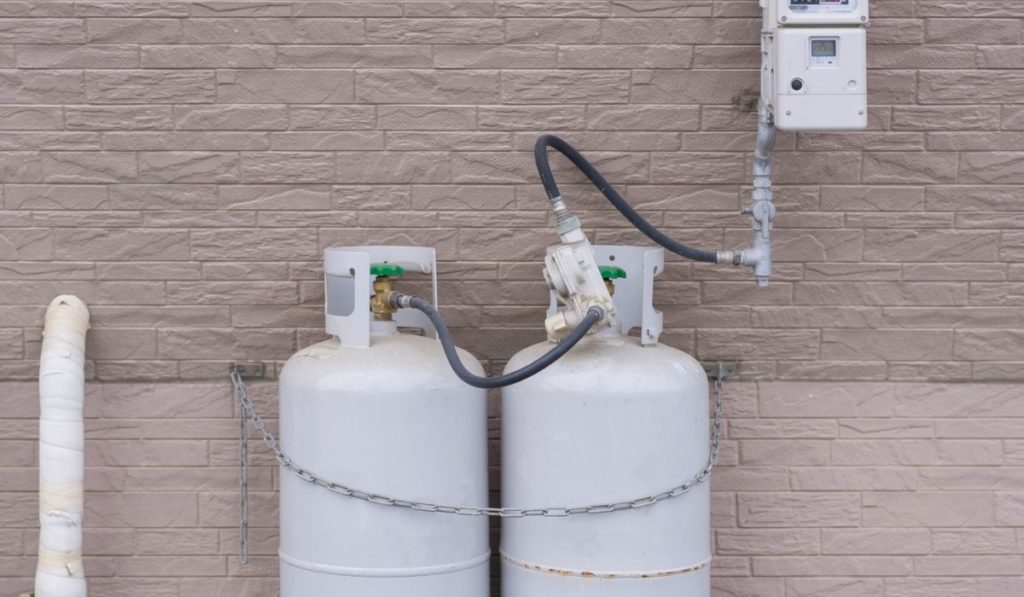
When grounding a propane tank, there are a few things that need to be considered. These include:
- The tank should be connected without any insulating joints into a grounded metallic piping system.
- If the cylinder tank is vertical, it should rest on the earth or concrete and should be at least 20 ft in diameter. Otherwise, it should rest on bituminous pavement and should be at least 50 ft in diameter.
- When grounding the tank, it should use a minimum of two grounding electrodes.
- If the tank installation is using an insulating membrane that is beneath for environmental reasons (or other reasons), it should also be grounded.
For all kinds of grounded tanks, they should be treated with the necessary precautions so they can safely dissipate and remove any excessive electrical current that could potentially harm the area.
The general requirement is that wherever a fire hazard exists, precaution must be taken. This is to prevent a difference in the electrical potential between the surfaces that are conductive. This is also to ensure the safe dissipation of the electrical current through bonding or grounding.


